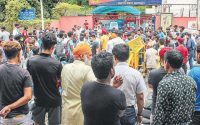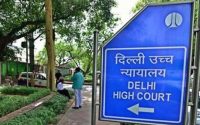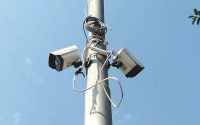$100 Website Offer
Get your personal website + domain for just $100.
Limited Time Offer!
Claim Your Website NowDelhi HC should not have made comments: SC
Source – telegraphindia.com
The Supreme Court said on Wednesday that Delhi High Court was justified in examining the sealed-cover report submitted by the Enforcement Directorate while hearing the bail plea of P. Chidambaram on November 15 but it ought not to have made observations on the basis of the material submitted.
Writing Wednesday’s judgment granting bail to the former Union minister, Justice A.S. Bopanna said the high court should not made the observations, especially because Chidambaram had fulfilled the “triple test” criteria fixed by the Supreme Court in earlier cases for granting bail.
Under “the triple test” doctrine, an accused can be granted bail if it can be established that he or she is not a flight risk, will not influence witnesses and will not tamper with the evidence. Chidambaram had fulfilled the criteria.
The high court had taken the view that the allegations against Chidambaram were grave and if he was released, it would send wrong signals to the society.
The Supreme Court said it, too, had gone through the sealed-cover report submitted by the ED but refrained from commenting on it lest it “prejudice the accused pre-trial”.
The Congress leader is facing simultaneous prosecution by the CBI and the ED in the INX Media money-laundering case. On October 22, the Supreme Court had granted him bail in the case filed by the CBI, but he continued to be in jail as he was arrested by the ED in custody on October 16.
Writing Wednesday’s judgment, Justice Bopanna said: “…It would be clear that even after concluding the triple test in favour of the appellant, the learned judge of the high court was certainly justified in adverting to the issue relating to the gravity of the offence. However, we disapprove the manner in which the conclusions are recorded… wherein the observations are reflected to be in the nature of finding relating to the alleged offence.
“If that be the position, in the instant case, the learned judge while adverting to the materials, ought not to have recorded a finding based on… the materials produced before him. While the learned judge was empowered to look at the materials produced in a sealed cover to satisfy his judicial conscience, the learned judge ought not to have recorded finding based on the materials produced in a sealed cover.
“In that circumstance though it is held that it would be open for the court to peruse the documents, it would be against the concept of fair trial if in every case the prosecution presents documents in sealed cover and the findings on the same are recorded as if the offence is committed and the same is treated as having a bearing for denial or grant of bail.”
The court said it had read the sealed-cover report, which contains only the statements of some persons with regard to certain allegations against Chidambaram’s son Karti, an accused in the same case, relating to opening shell companies and purchasing benami properties in the names of relatives in different countries.
“Except for recording the same, we do not wish to advert to the documents any further since ultimately, these are allegations which would have to be established in the trial wherein the accused/co-accused would have the opportunity of putting forth their case, if any, and an ultimate conclusion would be reached,” the Supreme Court said.
The court set the following bail conditions:
- Chidambaram will have to furnish a bail bond Rs 2 lakh with two sureties of the same amount.
- He will have to deposit his passport.
- Chidambaram shall not leave the country without specific orders from the trial court special judge dealing with the case.
- He shall make himself available for interrogation as and when required by the ED.
- Chidambaram shall not tamper with evidence or attempt to intimidate or influence the witnesses.
- He shall not give any media interviews, nor make any public comment in connection with the case.



